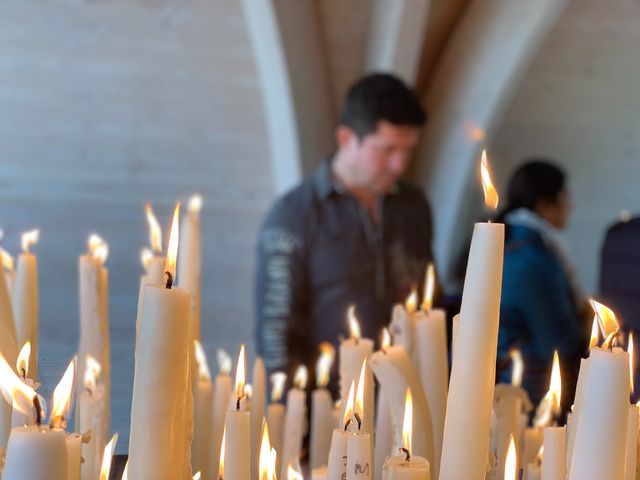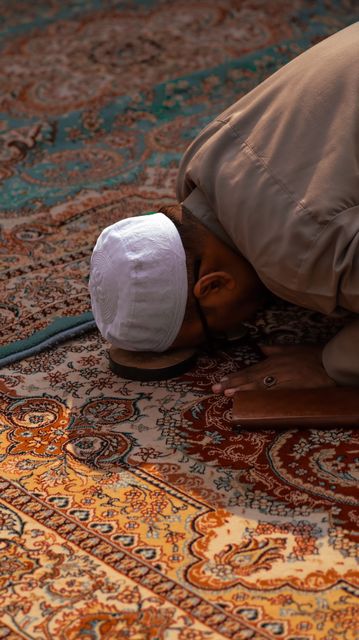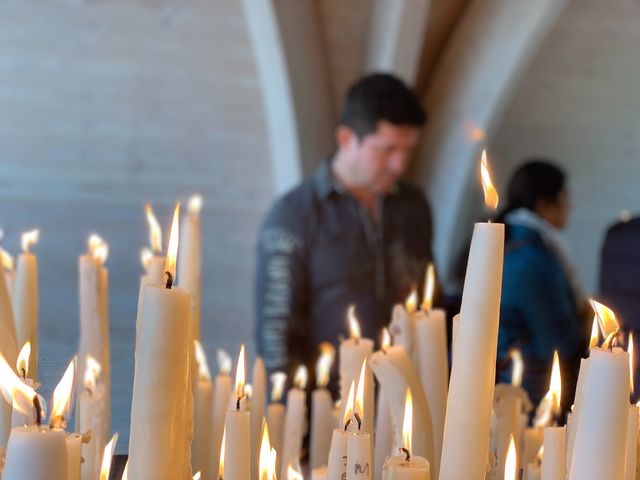
Over the last few years, people have been talking about the difference between religion and spirituality. A lot of this discussion comes from some significant changes that have happened in religious life in the United States. Studies show that participation in organized religion has declined. In fact, one of the fastest growing groups is called the Nones. These are people who describe themselves as having no religious affiliation.
It is important to see the dramatic nature of this change. According to the General Social Survey, in 1972, just 5 percent of Americans claimed “no religion.” In 2018, that number rose to 23.7 percent, making the Nones as numerous as both evangelical Protestants and Roman Catholics. Within the next decade, these Nones could be the largest religious group in the United States.
But how, exactly, can you call the Nones a religious group? In fact, there is a lot of diversity among people who identify as None. Yes, many of them participated in organized religion for most of their lives, but, for a variety of reasons, have decided to leave. And yet, many Nones walk away from a particular expression of religion—the one they grew up with—but still consider themselves spiritual in some way.

This leads to another term that has become popular over the last few years—Spiritual But Not Religious (SBNR). Those who identify as SBNR have their own diversity and share similarities with the Nones. Many do not identify with a religious group in any way; you could describe them as atheist, agnostic, or secular. Others have some hold looser, not clearly defined, views about God, spiritual practices, or religion, but these views still play some role in their lives.
Some SBNRs are actively, even deeply, involved in spiritual practices that nurture their sense of meaning and purpose. Many of them have personal, individual practices. Some are involved in alternative spiritual communities. Others, even while identifying as SBNR, the community where they express their religious practices is the church; however, the place that church holds in their lives is very different than traditional church members.
If you want to know more, there has been a lot of material written about these two groups. I mention them as a way to explore the difference between faith/belief and practice.
Western Christianity is primarily a propositional faith. If you ask people what it means to be a Christian, most likely, you will hear about certain propositions, beliefs, or doctrines. To be a Christian means to accept these doctrines, adhere to them, and find ways to let them influence your living.
However, this emphasis on doctrine is not as prevalent in other religious traditions. When I ask my Muslim friends what it means to be Muslim, they often speak to me of the Five Pillars of Islam: testifying that there is no God but Allah and Muhammad is his prophet, daily prayers, paying the tithe, making pilgrimage, and fasting at Ramadan. All of these are actions that provide a framework for life of devotion.
When I ask my Jewish friend what it means to be Jewish, often they will speak of Jewish foods, customs, and rituals. This includes observing Sabbath and holy days, eating kosher. With their own calendar, it impacts how they view time. Again, mostly actions that provide a framework for a life of devotion.
When I ask my Buddhist friends what it means to be Buddhist, often they will speak of the Eightfold Path: right understanding, right values and attitudes, right speech, right action, right work, right effort, right mindfulness, right meditation. Mostly actions that provide a framework for a life of devotion.

I am not suggesting that other religions do not have beliefs or doctrines. However, it does seem Christianity in our culture places a significant emphasis or right beliefs or ideas. A question: Too much emphasis?
Could it be that too much emphasis on beliefs leads to spending a lot of time on clarifying beliefs? Could it be this clarifying of beliefs leads to deciding whose beliefs are or are not right? Could it be that this deciding whose beliefs are right or wrong leads to seeing others differently because their beliefs do not align with ours?
I think these are important questions because I wonder if this emphasis on belief/doctrine is one of the reasons so many people are now choosing to identify as Nones or SBNR. Beliefs were taught to them as they grew up in a tradition, but for many, these beliefs do not give meaning or guidance in how they order their lives. For many, these beliefs begin to feel inaccurate or even wrong, and it seems their only options are to accept or reject.
For me, the spiritual journey, the journey of faith, is more about actions and practices than beliefs. For me, these actions and practices inform my life—the decisions I make and the meaning I experience—more than beliefs or doctrine.

I grew up in the Christian tradition, so I can share only from that place. I literally grew up in that tradition, going to church for as long as I can remember. The sermons I heard, the Sunday school lessons I learned, all of them were about belief. Even the grand act of salvation was about believing that I was a sinner, that Christ died for me, and accepting Jesus into my heart.
But before Jesus was someone who died for my sins, as a child and even an adolescent, Jesus was a hero. Like Roy Rogers or Superman, he was a hero. I was inspired by the stories and the words I heard every week. In my mind, I would imagine them happening and wonder how I could be like that. I have reached the place in my journey where I don’t believe that Jesus really wants us to believe certain things about him. I believe that Jesus wants us to follow him.
I participate in the Christian Church (Disciples of Christ). Often, we jokingly call ourselves the “People of the Parenthesis.” But there is meaning in what the parentheses contain. “Christian” is a word that can have a lot of meanings (including what you believe), but a disciple is one who follows. Again, it is about actions and practices.
Over the next several blog posts, I will be exploring some practices, ways of being that I feel are important for the spiritual journey. But for now, I welcome your thoughts and reflections on these words.

This is a tough one for me. I believe all I was taught about Jesus and his life. However, the “why” is very different than what I was taught in church. I have found organized religion, in practice, to be one of the most divisive creations of humanity. My focus on Jesus is more about what he came here to teach us and what he truly wanted us to learn. Not because he needed some ego-based following, but because he knew we would live happier more fulfilled lives. I once heard a spiritual teacher state that Buddha was the mind of God and Jesus was the heart of God. In my strict religious upbringing, that statement would have been blasphemy, because you couldn’t connect to or relate to another religion’s beliefs. Why? If God created all of mankind, isn’t it possible that other religions could bring value? “Why” became a word of choice as I began to find my own path with the Divine! Too much of what I was being taught did not make sense to me and the God I was being presented sounded more mean and egotistical than unconditionally loving and benevolent. Not to mention what I was being taught about myself…I’m an unworthy sinner whose good works are dirty rags to God…WHAT? The God I have found is not the God of a religion. But I am grateful for all of that church upbringing. While the version of God I was being presented left me feeling bad about myself and about life in general, the things I was taught about Jesus – well, he was this “person” I could relate to and he was loving, kind, non-judgmental, down to earth, a people-person. In fact I would say that he was not too keen on organized religion either. It has taken me years to undo the awful image I had of God (and to be honest, there are still times I recognize remnants of those old beliefs) but Jesus was just this cool rebel, teacher, wise man, healer, human that loved everyone so much he just wanted to “save” them by showing all of us what the world could be like if we believed in ourselves, if we would show more love than hate, if we could open our hearts and mind to humanity, who showed us that judging others was merely us judging ourselves. I believe the Father, Son and Holy Ghost would be astonished at what humankind has done with some of the most profound teachings the world will ever see. People have used religion to turn against others. I KNOW that was never the intention.
Thank you for your willingness to share some of the personal details of your journey, Linda. I think your journey is one that many could identify with. In fact, many people talk about deconstructing the Christian faith in which they grew up, and then reconstructing based on where they are now.
As I read your words, it seems you have captured some of the struggles that come with an emphasis on belief. Perhaps you can form a religion around belief, but it is more difficult to form a spiritual/faith journey around belief. For me, practice brings in the experiential and relational aspects of a faith journey. In fact, you could say that a definition of doctrine is an attempt to verbalize, in some organized way, your experience of God.
Very thought provoking article. I have not heard of “Nones” before, but from this reading, I know people who would definitely fit that definition.
I love your posts Gary, thank you so much for including me!
Yes, that would be Nones, instead of Nuns!! LOL
Thanks for sharing Gale. I appreciate you reading and commenting.
Gary